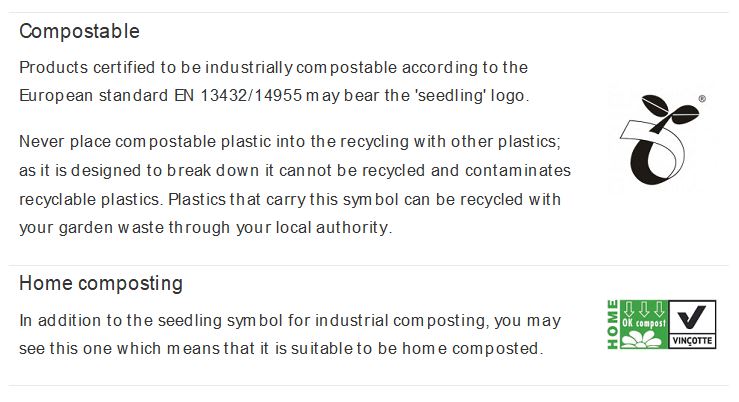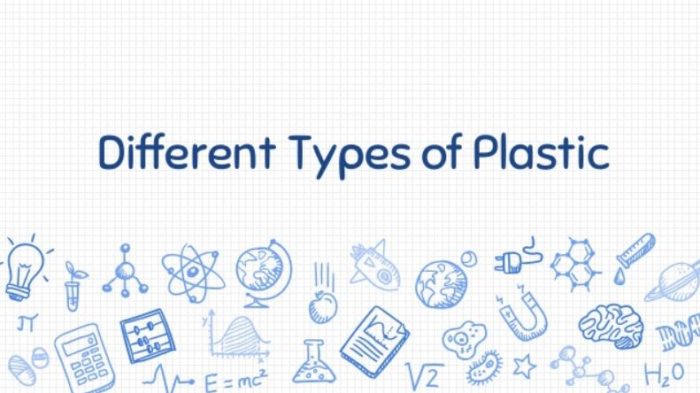Compostable plastics
Reducing plastic pollution
There has been a great deal of publicity about the damage that is being done the environment by the disposal of plastics, and in particular single use plastics used in food wrapping. Fortunately, there are now different materials, still plastics in many cases, that offer a better environmental performance. However, the terminology is very confusing. These notes are based on a recent publication by Riverford Organic Farmers, the Devon-based organic food producer and operator of one of the larger box schemes.
It is possible to use compostable mailing wrappers as food waste bags and place these into the kerbside collection bins. It is best to place any additional compostable plastics within a suitable ‘bag’ to avoid the bin being left unemptied if it looks to contain plastics! Non-compostable plastics must not be added to food waste for collection by the local council.
Degradable plastics
Degradable or oxo-degradable plastics break down into smaller pieces but never completely break down into harmless matter. As these materials break down they form water, carbon di-oxide, organic matter and micro-plastics which can cause environmental damage and enter into the food chain. Degradable plastics can be broken down but only using chemicals that also are detrimental to the environment.
Biodegradable plastics
Biodegradable plastics do break down into water, carbon di-oxide and organic matter but the process is slow. These materials will not biodegrade in a home composting system and in the absence of some specific conditions they can lead to partial breakdown leaving microplastics.
Compostable plastics
Compostable plastics break down to water, carbon di-oxide and organic matter like biodegradable plastics but far quicker and there is less risk of microplastic residues. There are several types of compostable plastics. Some require the higher temperatures of industrial process plants, or maybe a really hot home composting system (unlikely that a traditional compost heap will ever get hot enough). Typically the breakdown only occurs at 60C or hotter. Plastics marked as ‘home compostable’ will degrade at more achievable temperatures of 20 – 30
C, in reality any home compost arrangement. The plastics should disappear in a couple of months, possibly a bit longer in winter months. The conclusion is that you have to be careful to understand exactly which type of plastic is being used! Certainly experience has shown that many of the starch-based plastic wrappers for magazines and some of the single use plastic food wrapping will degrade quite quickly in the compost, some that looks very similar can hang around and become a bit of a nuisance!
Most plastics are not clearly marked but some mailing companies do tell you on the wrapper or on the publication or address slip if the material is suitable for composting. There are some standard logos in use as follows:

Please be careful to separate plastics before recycling into the various types. Some such as milk bottles and various plastic tubs can be recycled and the plastic reused. However, degradable plastics will contain materials that make a recycled plastic unusable, as we do not expect durable plastic objects to break down!
